Navigating the maze of telecom billing can sometimes feel overwhelming, especially when discrepancies arise. It's not uncommon to find charges that don't add up or services you didn't agree to. Understanding your rights and how to address these billing issues can make a significant difference in your experience as a consumer. So, grab a cup of coffee, and let's dive into how to effectively tackle incorrect telecom billing!
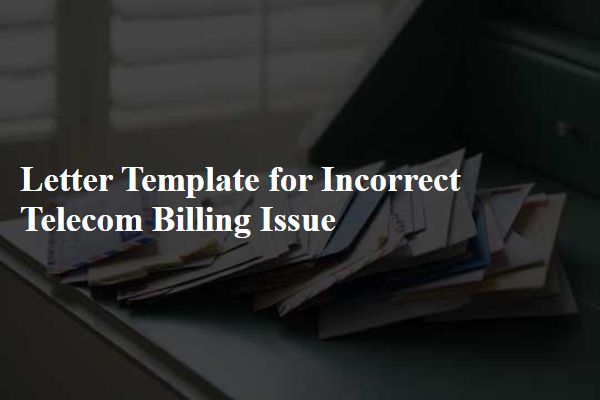
Customer Information Accuracy
Telecom billing discrepancies can arise from various factors, including incorrect customer information entry. Accurate customer information, including name, address, and account number, is crucial to prevent billing errors. Errors in data entry may lead to overcharges, erroneous service charges, or even missed payments. Verification of customer data regularly can mitigate these issues and ensure the integrity of account information in billing systems. For example, inaccurate addresses may result in service activation delays or billing to the wrong customer, creating confusion and frustration. Implementing automated systems for data verification and regular audits can enhance accuracy in customer information, leading to improved customer satisfaction and trust.
Clear Description of Billing Error
The recent telecom bill reflects discrepancies in charges for services rendered during the billing cycle of September 2023. The data plan indicated a monthly fee of $50, yet the final amount presented is $75, suggesting a $25 overcharge. Additionally, international call rates are specified as $0.10 per minute in the contract, but the bill shows charges of $0.15 per minute for calls made to Canada during this period. Furthermore, a charge labeled "service fee" of $10 has appeared without prior notification, violating transparent billing practices mandated by telecommunications regulations. This combination of incorrect charges necessitates immediate rectification to restore fair billing practices.
Supporting Evidence and Documentation
Telecom billing discrepancies can result in significant customer frustration and confusion. Inaccurate bills may arise from erroneous data entries or faulty metering systems. For instance, a misreported usage of 500 gigabytes instead of the actual 200 gigabytes can lead to significantly inflated charges on a monthly bill. Supporting evidence such as call logs, data usage records, and payment history should be meticulously gathered to substantiate claims. Documentation like contracts and service agreements can provide additional context regarding agreed-upon rates and terms. If escalated to regulatory bodies such as the Federal Communications Commission (FCC) in the United States, the presence of thorough and organized documentation can enhance the resolution process.
Requested Resolution or Action
Telecom billing discrepancies can lead to consumer frustration and confusion. Common errors include inflated charges, duplicate billing, or services not rendered that appear on invoices. For instance, a customer may notice an unexpected charge of $50 for data services during a period when they had a plan that included unlimited data. Additionally, miscalculations in taxes or fees can further complicate the billing process, leading to a lack of trust in telecommunications providers. It is essential for consumers to detail specific discrepancies, such as account numbers and billing dates, when seeking resolution to expedite corrections and ensure fair charges in the future.
Contact Information for Follow-up
Telecom billing discrepancies frequently arise due to a variety of factors including misunderstanding of service plans and erroneous charges. Customers may notice discrepancies in their statements when comparing them against agreed-upon rates and services detailed in their contracts. For instance, unexpected fees (like activation charges or international call fees) may appear on bills, leading to potential disputes. It's crucial to have accurate contact information for follow-up actions, such as customer service centers or billing departments. These entities ensure resolutions and adjustments to incorrect charges. When customers gather organized documentation, such as invoice numbers and transaction dates, it aids in clarifying billing issues effectively.
Letter Template For Incorrect Telecom Billing Issue Samples
Letter template of request for correction of billing discrepancies in telecom services.
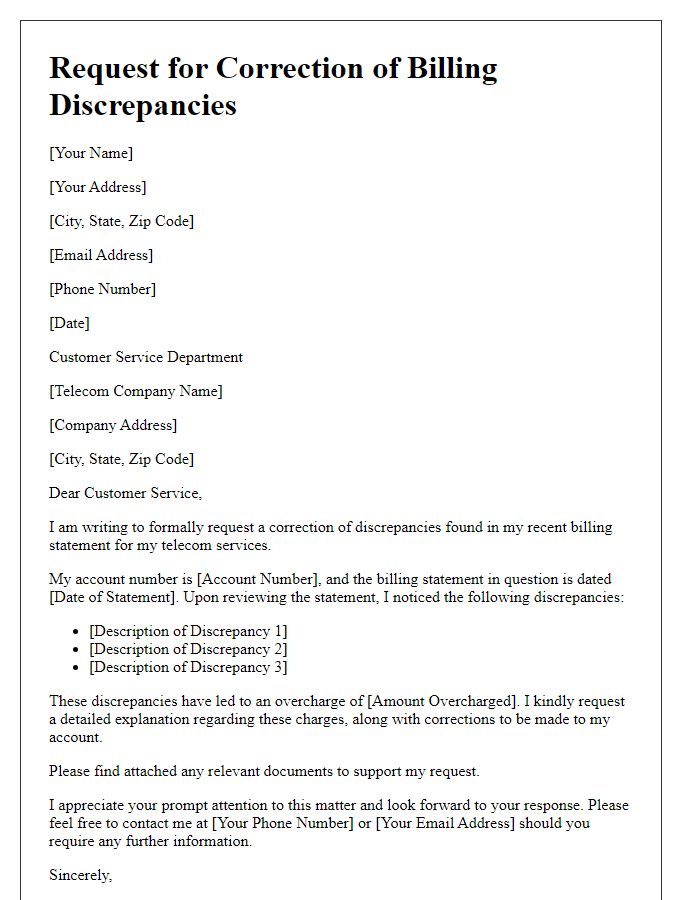
Letter template of appeal for resolution of billing inaccuracies with telecom provider.
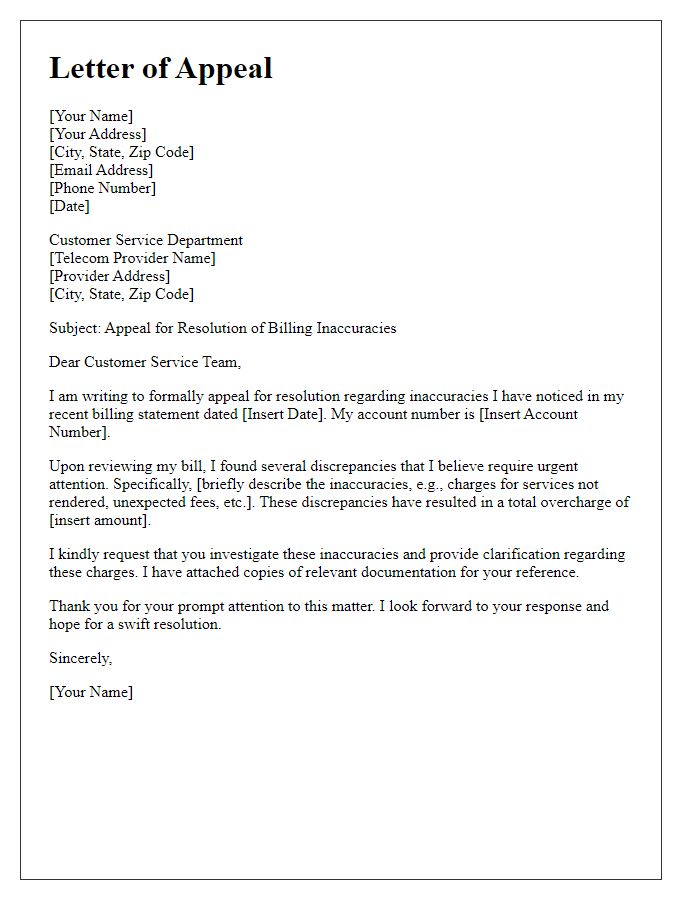
Letter template of formal dispute regarding overcharged telecom services.
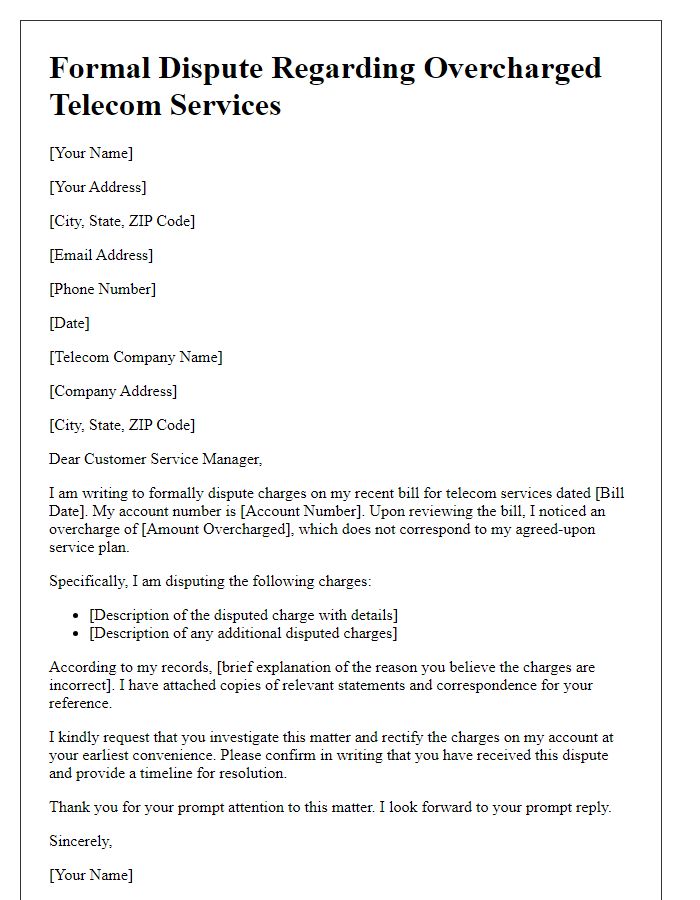
Letter template of request for adjustment due to billing mistakes in telecom account.
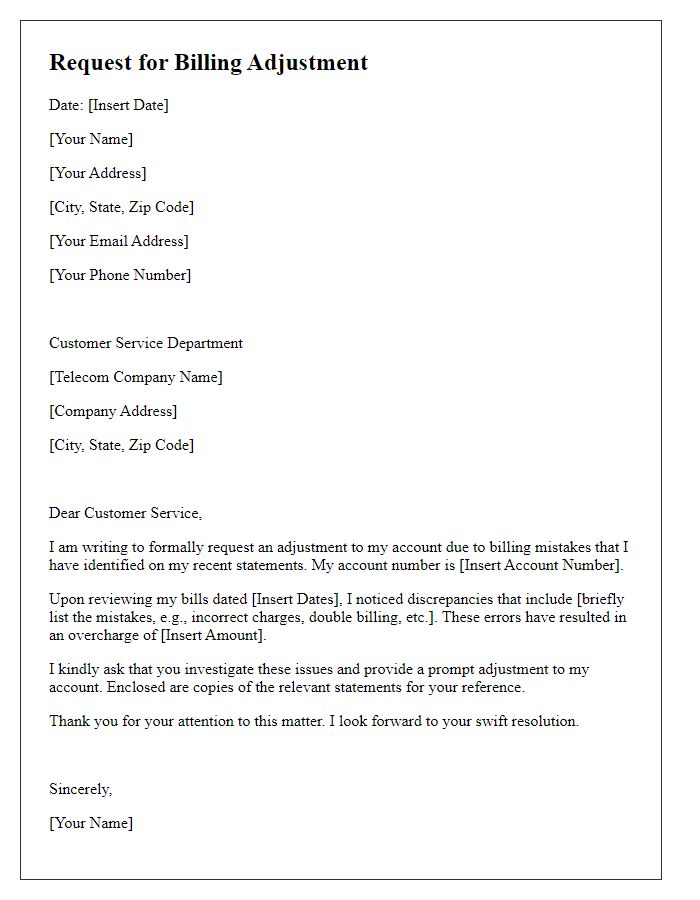

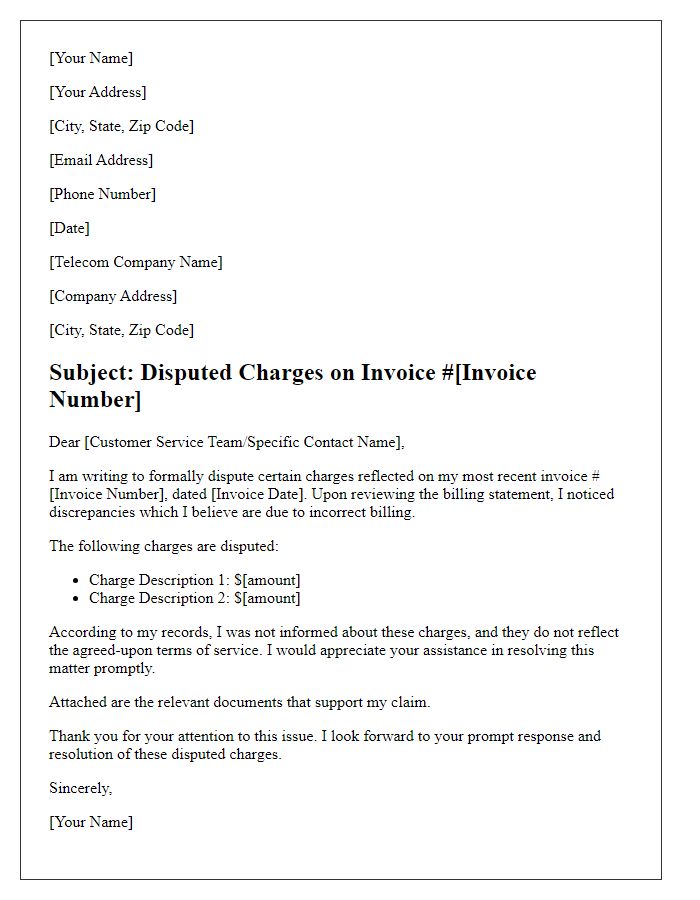
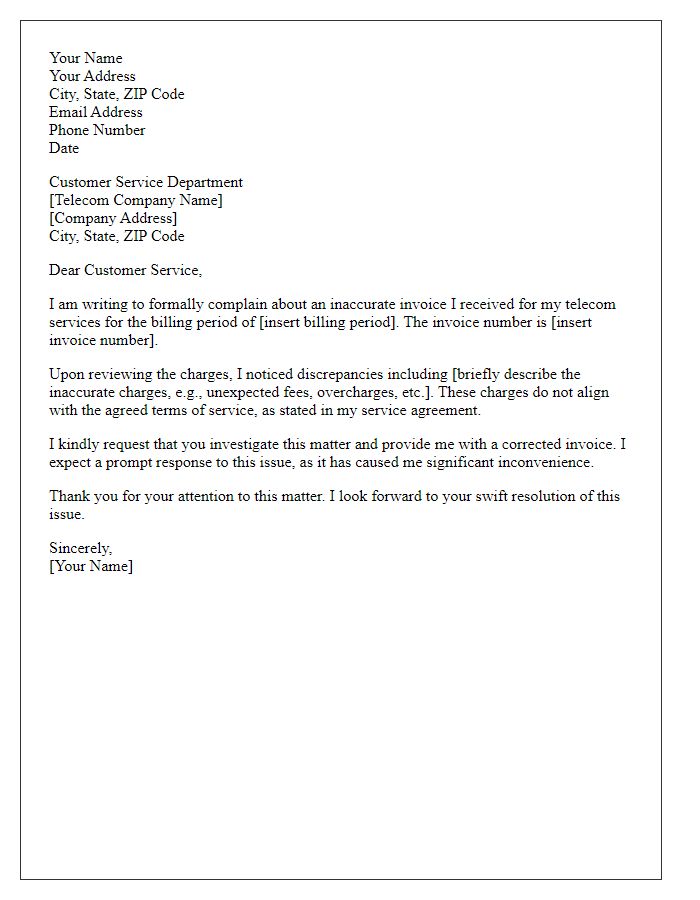
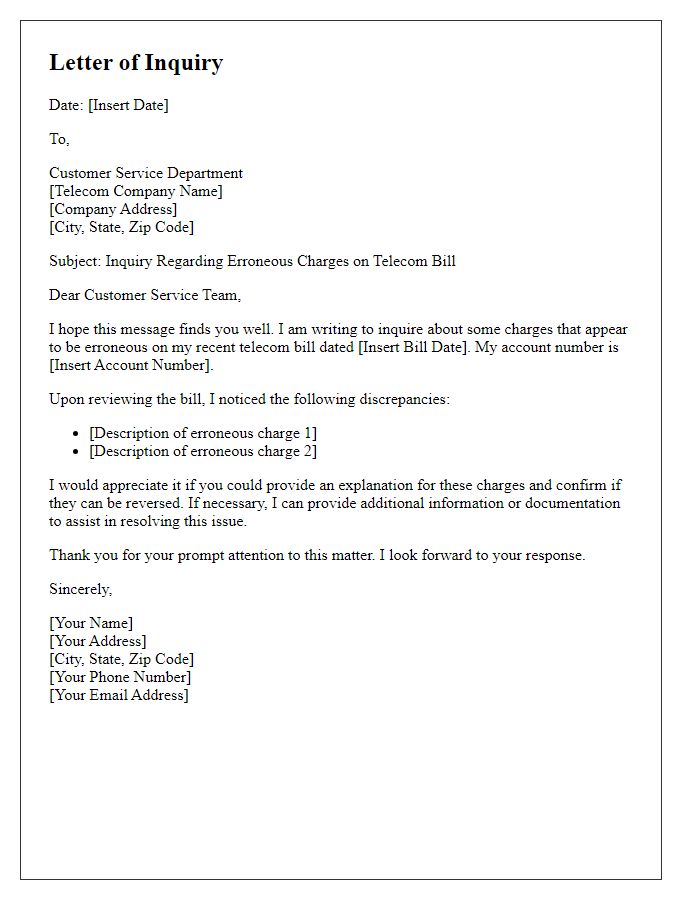
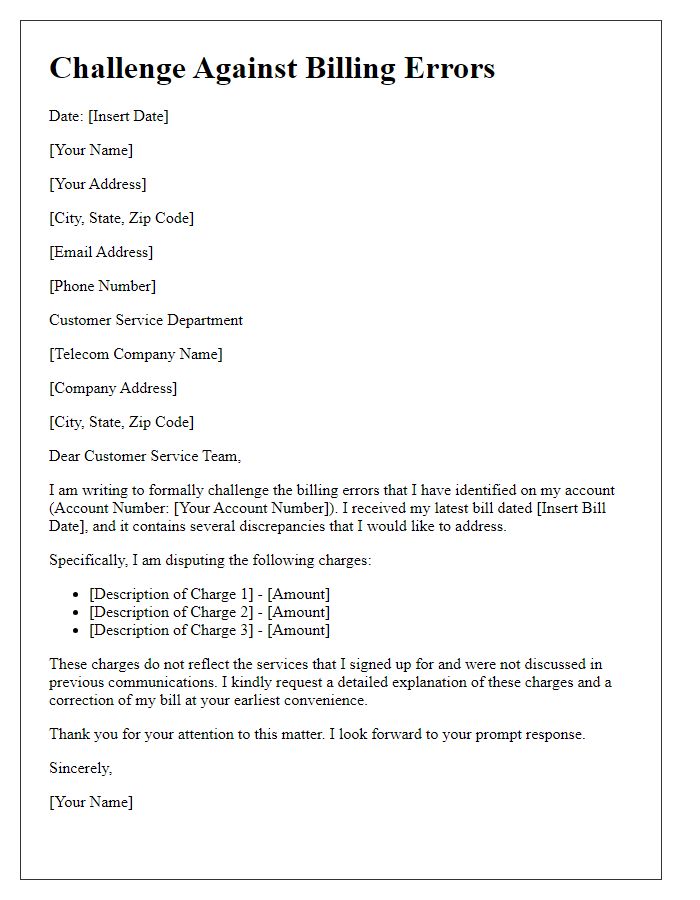
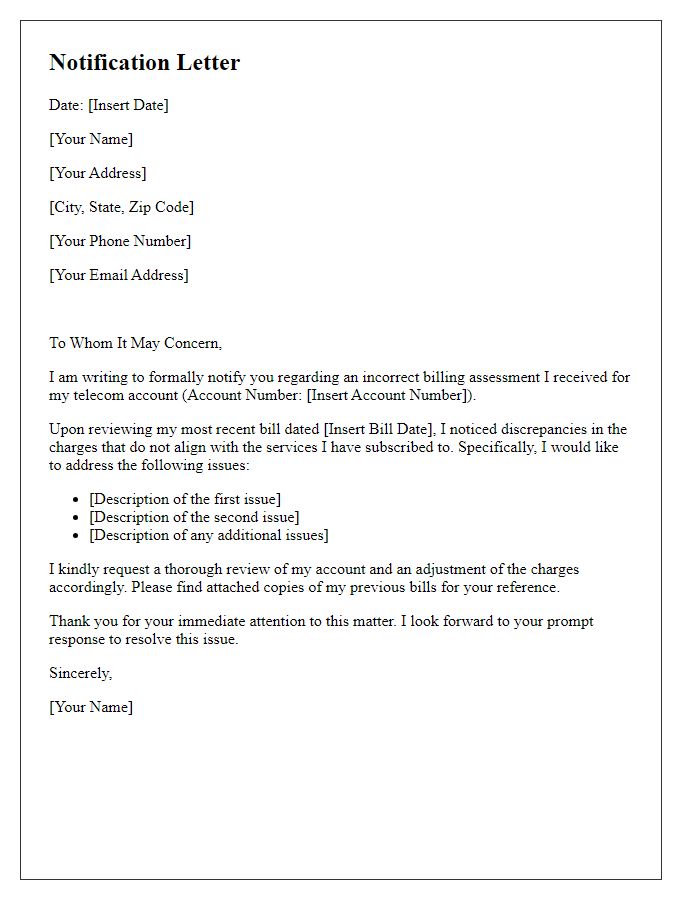
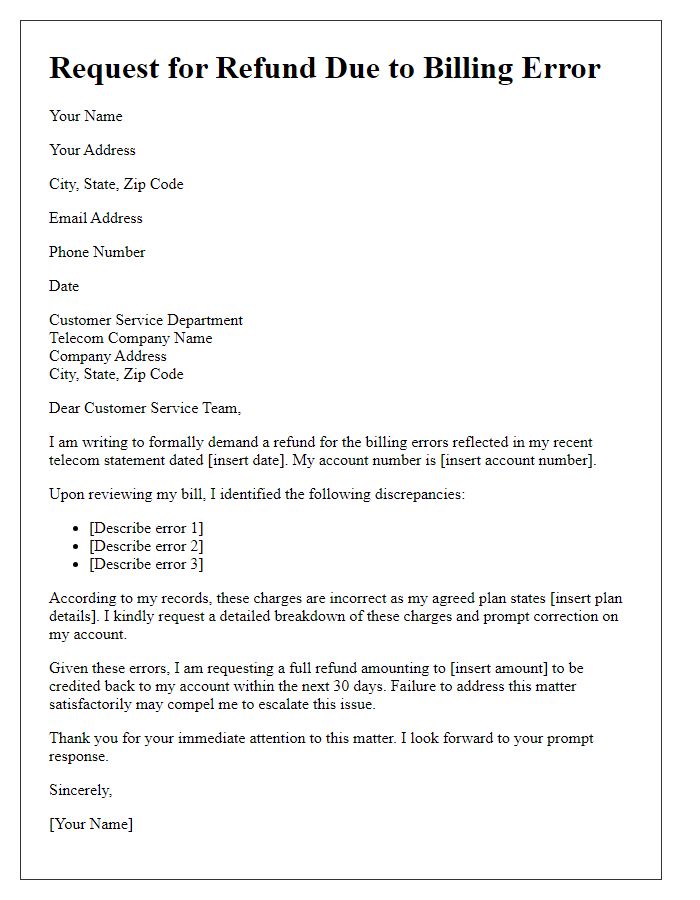

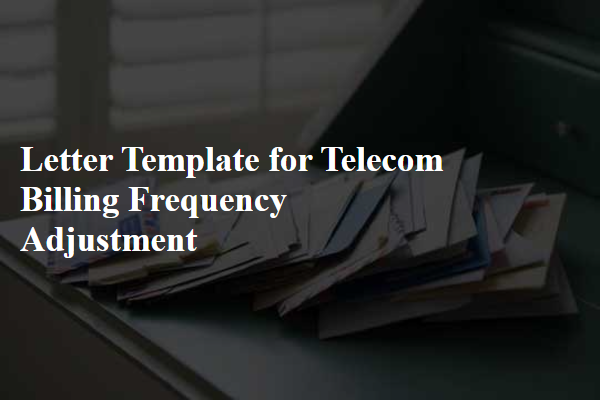
Comments